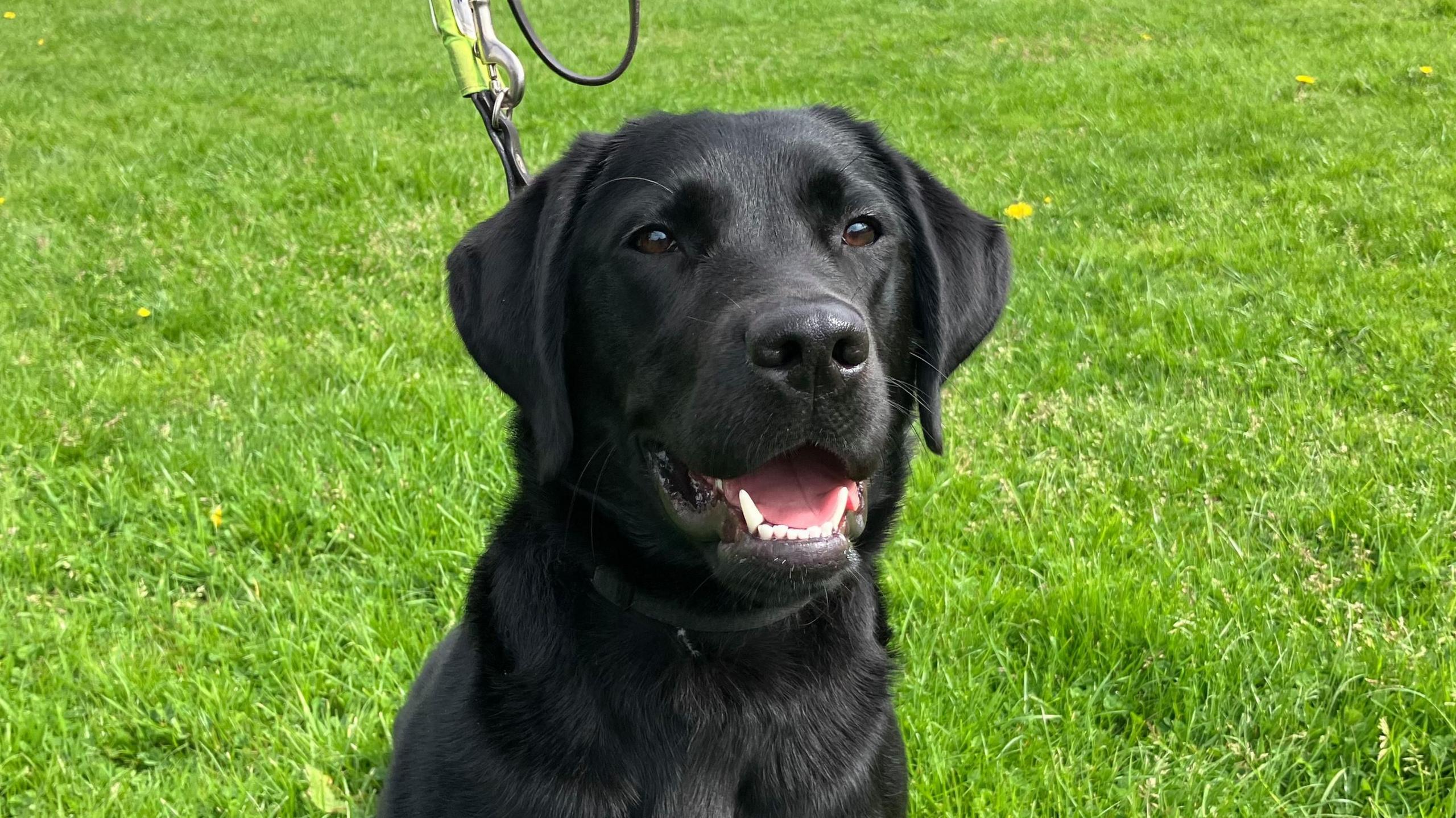How life-changing assistance dogs are raised
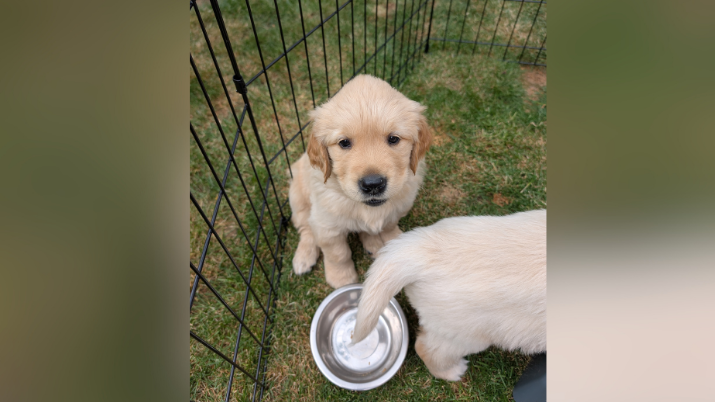
Dogs for Good has its own breeding programme
- Published
"The need is always there - not just for assistance dogs but for positive connections with dogs."
Dogs for Good in Banbury, Oxfordshire, trains dogs to help people with physical disabilities, autism and dementia.
The charity is currently caring for Labrador Retriever and Golden Retriever puppies at the very start of their journeys to become assistance dogs.
Maddy Phelps, from Dogs for Good, told the BBC the charity was "involved in every step of every dog's life".
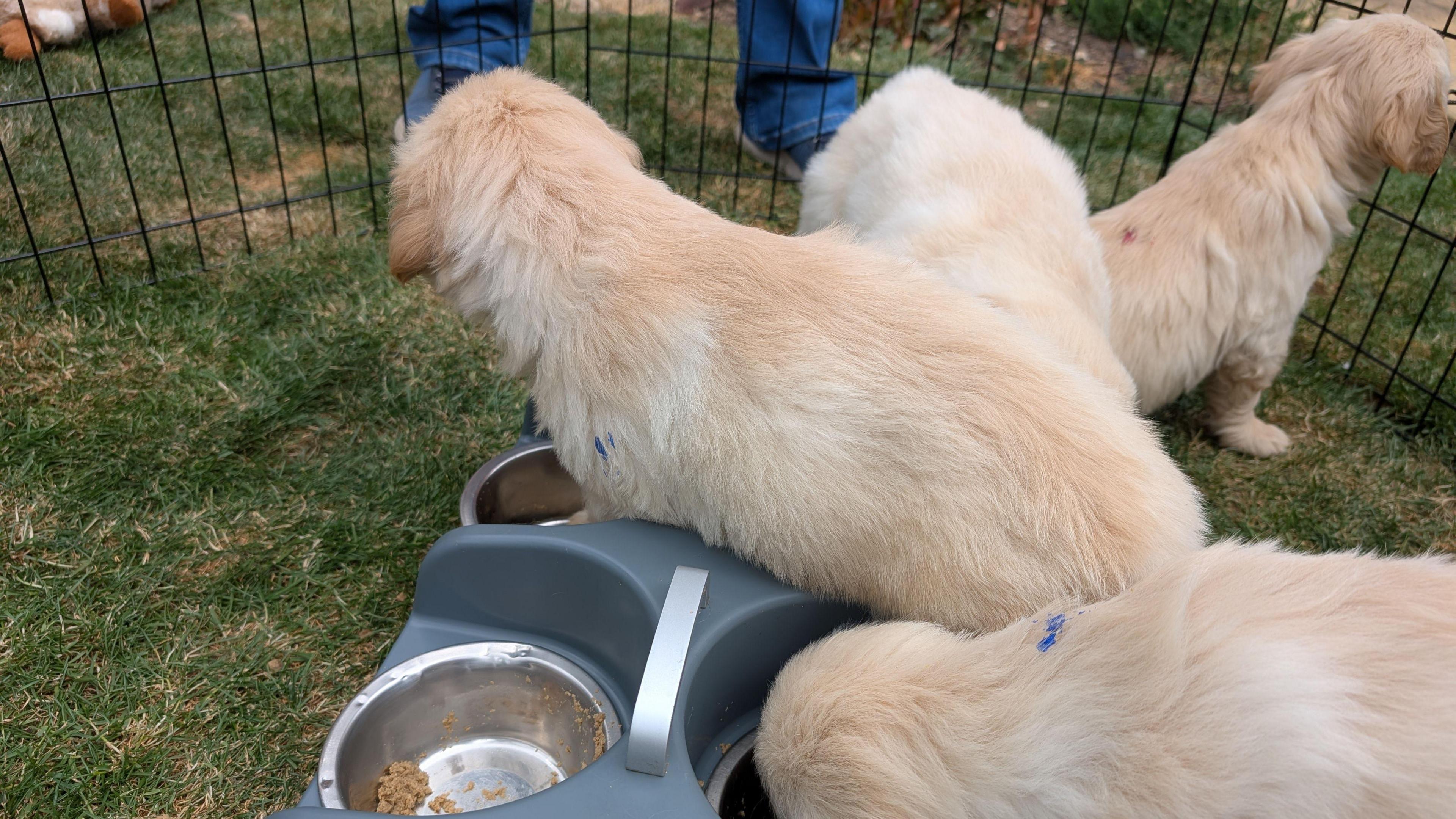
Maddy Phelps, from the charity, said they made sure the puppies were fully weaned from their mum before they were separated
The charity has its own breeding programme, through which it selects its broods and stud dogs.
Ms Phelps said volunteers look after the mothers and their puppies for the first eight weeks of their life.
She said: "During that time, our puppy team will come and visit mum and puppies to make sure that everything's progressing as it should be and that everybody's happy and everybody's safe.
"The characteristics that we look for in a puppy mum is calm, confident, adaptable - those really positive mothering instincts and a good all round dog that's going to be a lovely mum to her puppies."
Each puppy will be with their volunteer for about 16 to 18 months until they return for formal training.
Ms Phelps said it was a lot for the female dogs to look after their litters, which could often be up to 12 puppies, and a week after giving birth were often ready to be "free" and "just be the pet dog again".
Before they leave their mother, the puppies must be fully weaned, so that they are able to eat and drink independently.
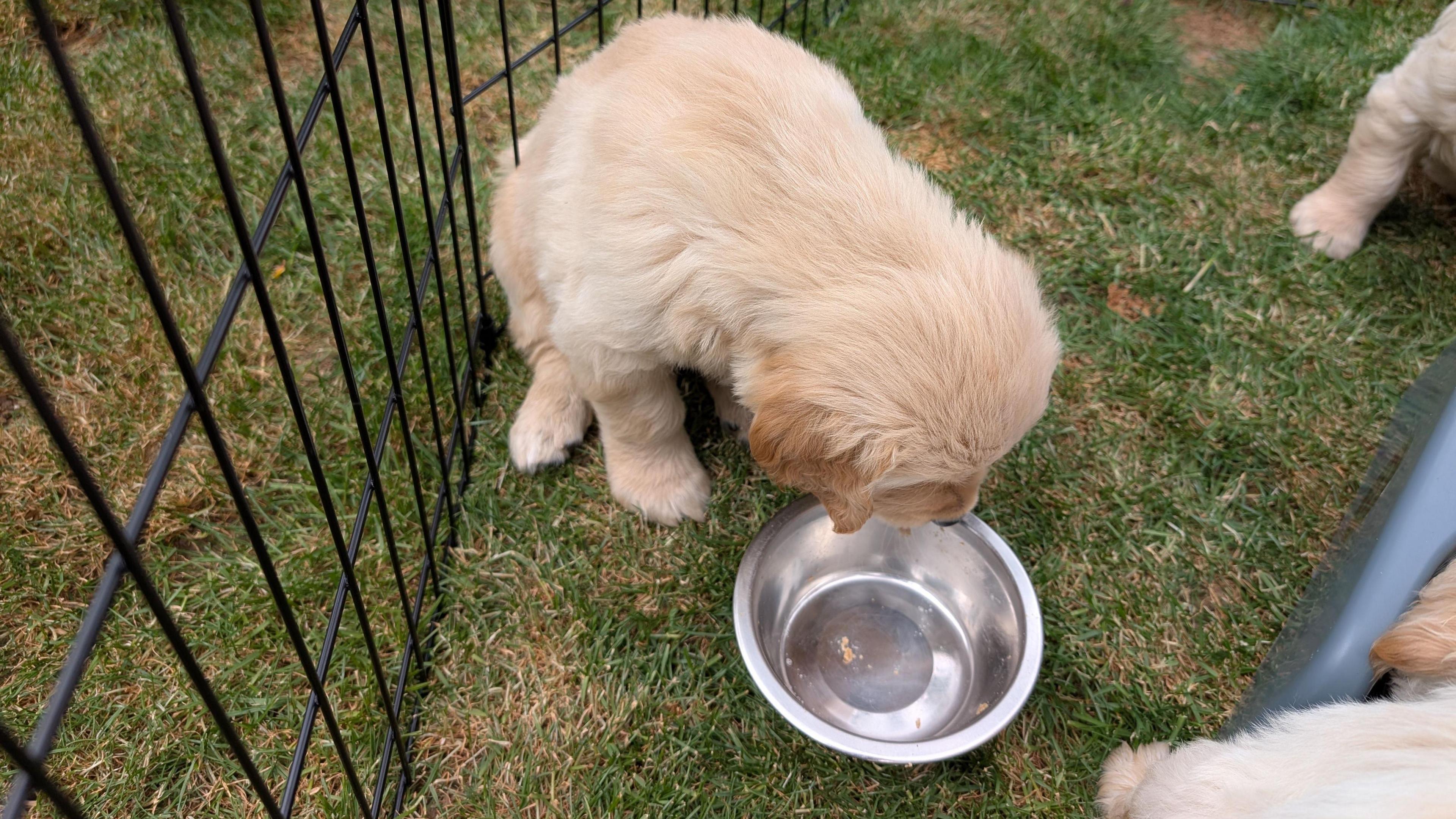
Ms Phelps said there was always a need for "positive connections with dogs"
Ms Phelps said the charity was "more than a supplier of assistance dogs".
"Twenty years ago we used to supply assistance dogs to physically disabled adults and children.
"And we are really proud of that heritage - it is where we come from.
"But, actually, it's only about 20% of the people that we connect with dogs that want an assistance dog."
The charity's community dog programme, for example, involves a specially-trained dog and professional handler working together to support an individual's needs such as building self-esteem and overcoming anxiety.
She said the charity was "broadening horizons all the time".
"The need is always there, not just for assistance dogs but for positive connections with dogs," she said.
"That's why having a broad brush of service is so vital."
Get in touch
Do you have a story BBC Oxfordshire should cover?
You can follow BBC Oxfordshire on Facebook, external, X (Twitter), external, or Instagram, external.
Related topics
Similar stories
- Published24 May
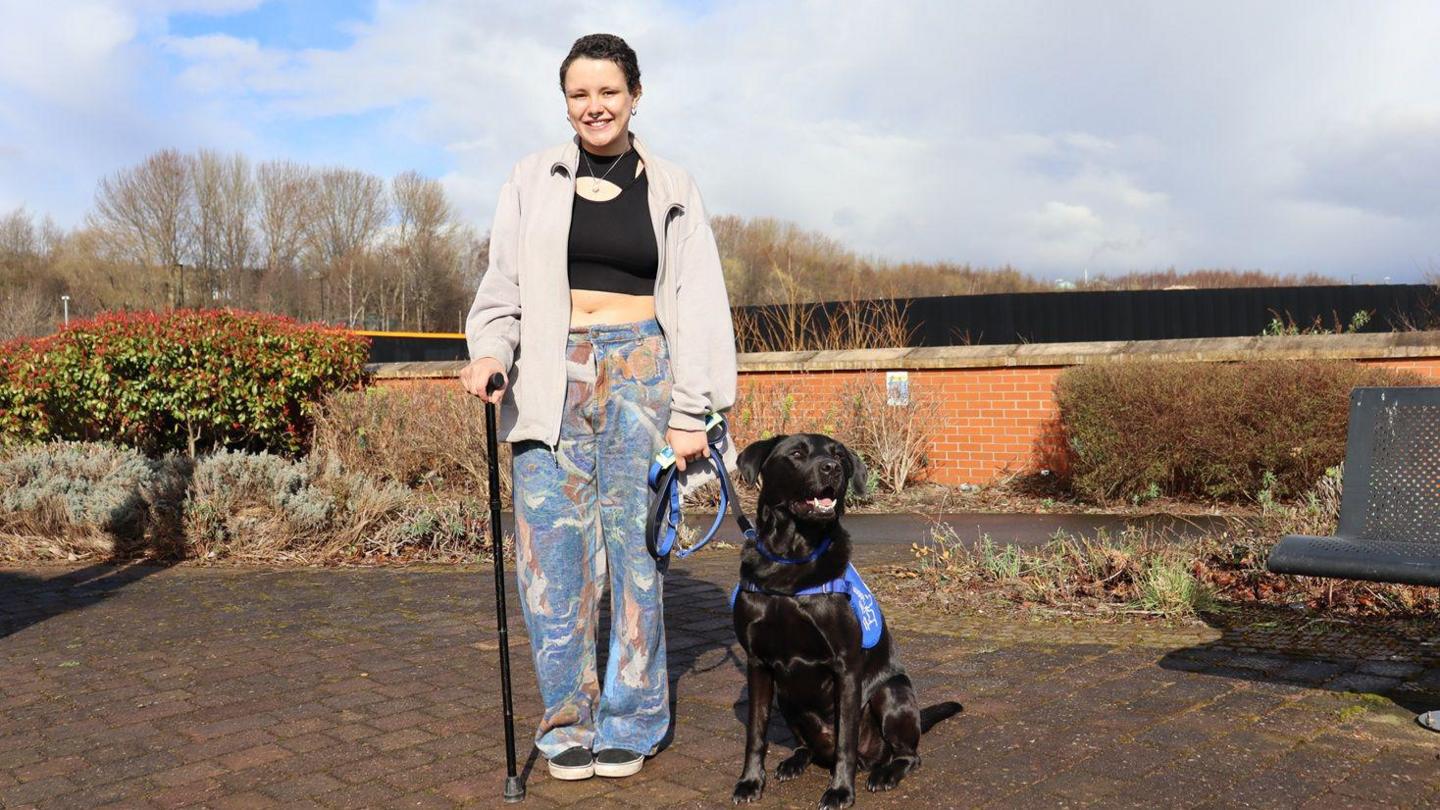
- Published14 May
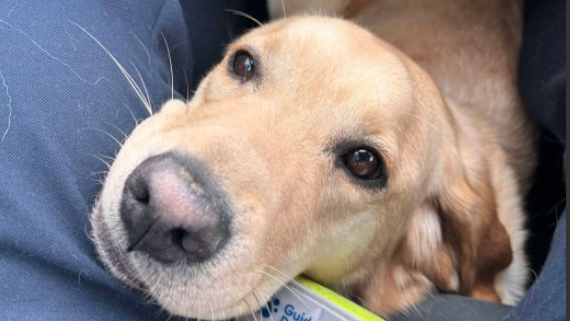
- Published3 May
